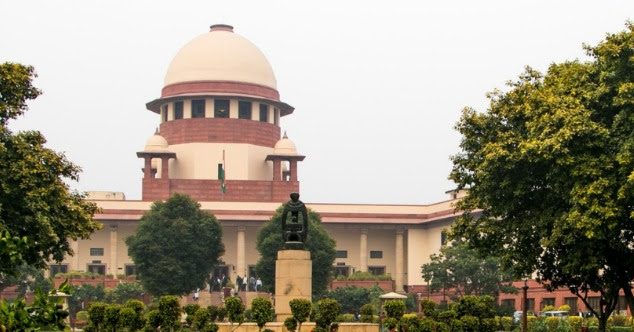Analysis
Monthly Review: October 2021
In October, the Court heard important cases on reservations, powers of the Directorate of Enforcement, and foreign funding for NGOs.

In October, the Court heard important cases on reservations, scope of the powers of the Directorate of Enforcement, and foreign funding for non-governmental organisations.
The Court also issued a judgment recognising the suo moto powers of the NGT, allowing a statutory tribunal to exercise powers often reserved for Courts.
Challenges to the Prevention of Money Laundering Act, 2002
In October 2021, the Court heard a group of over 80 petitions challenging the powers granted to the Directorate of Enforcement (ED). The ED is a financial investigation agency that enforces laws under the Prevention of Money Laundering Act, 2002 (PMLA).
The petitioners argue that the ED effectively exercises police powers. However, it is not obligated to follow the Code of Criminal Procedure, 1973 (CrPC). For example, this allows the ED to use statements made by the accused during investigation against them, which violates the fundamental right against self-incrimination. For more, visit our case page.
Challenge to the FCRA Amendment
In 2020, an amendment was passed to the Foreign Contributions (Regulation) Act, 2010. This amendment imposed various restrictions on the receipt and use of foreign funding by non-governmental organisations (NGOs). One such restriction required all NGOs to receive foreign funds only through the main branch of the State Bank of India in New Delhi. Effectively, all NGOs must now open bank accounts at this branch, irrespective of their location. A petition was filed challenging these restrictions on the grounds that they have no rational purpose, and severely hamper the work of NGOs.
The Court finished oral hearings in this case in October, and has reserved its order. A brief background of the case, and reports of the hearings are available on our case page.
Clarifications Sought on Jarnail Singh
In Jarnail Singh v Lacchmi Narain Gupta (2018), the Supreme Court had struck down Nagaraj, to the extent that states no longer had to prove backwardness of a class before granting reservations in promotions. However, Jarnail Singh required states to demonstrate under-representation in a ‘class of posts’ before providing reservation in promotions.
Several state governments sought clarifications on the implementation of the 2018 judgment. Various High Court decisions that struck down policies providing reservations in promotions on the basis of the 2018 judgment were appealed. A three-judge Bench heard these petitions and appeals in October. While they rejected prayers to reconsider the judgment, they did hear arguments on what clarifications are necessary. The Bench reserved its judgment after concluding oral hearings on October 26th.
Reports on these hearings are available on our case page.
Hearing: Constitutional Rights of Overseas Citizens; AIQ Medical Reservations
The Court continued to hear the challenge to Section 7D of the Citizenship Act, 1955. On October 29th, the Court admitted an interim application which sought to stay a Union government notification allowing OCIs to only compete for Non-Resident Indian (NRI) seats in the NEET medical entrance examination. A two-judge Bench held that OCI candidates would be allowed to compete for general category seats only for the 2021 examinations. According to Nazeer J, this was due to the last minute nature of the notification.
Over two hearings on the reservation in the All India Quota (AIQ) for OBCs and EWS candidates, the Bench sought answers on why the income cap for EWS was set at 8 Lakhs; and grounds for denying reservations to OBCs under the AIQ. The Bench also asked the Union to file an affidavit explaining the basis for the income limit for EWS candidates, granting reservations for OBCs and EWS candidates under AIQ for medical institutions.
Judgment: The National Green Tribunal has Suo Moto Powers
On October 7th 2021, Justice Hrishikesh Roy delivered the judgment in Municipal Corporation of Bombay v Ankita Sinha. The Court was deciding whether the statutory provisions governing a statutory tribunal such as the National Green Tribunal (NGT) could be read purposively.
Roy J emphasised that the right to a clean and healthy environment is enshrined in the right to life. Statutory provisions should be amplified to protect the right to life. Hence, the NGT may exercise suo moto powers to better serve its purpose.
Roy J discussed the role of the NGT, and the scope of use of its special suo moto powers. The judgment is discussed in detail in our report.
Pegasus Interim Order: Technical Committee Set Up to Investigate Allegations
On October 27th, an interim order was issued in the Pegasus Probe. CJI Ramana discussed the chilling effects of surveillance on privacy and freedom of speech. Our hearing report records Ramana CJI’s comments, and explains the way in which the committee will be set up. A plain English summary of the Order is also available on the website.